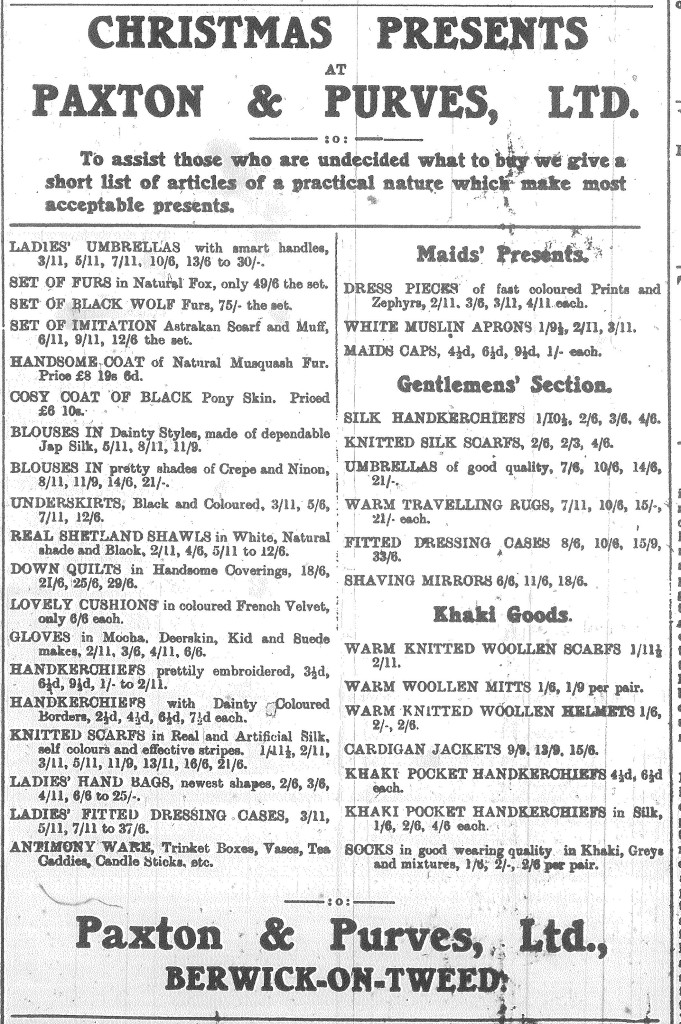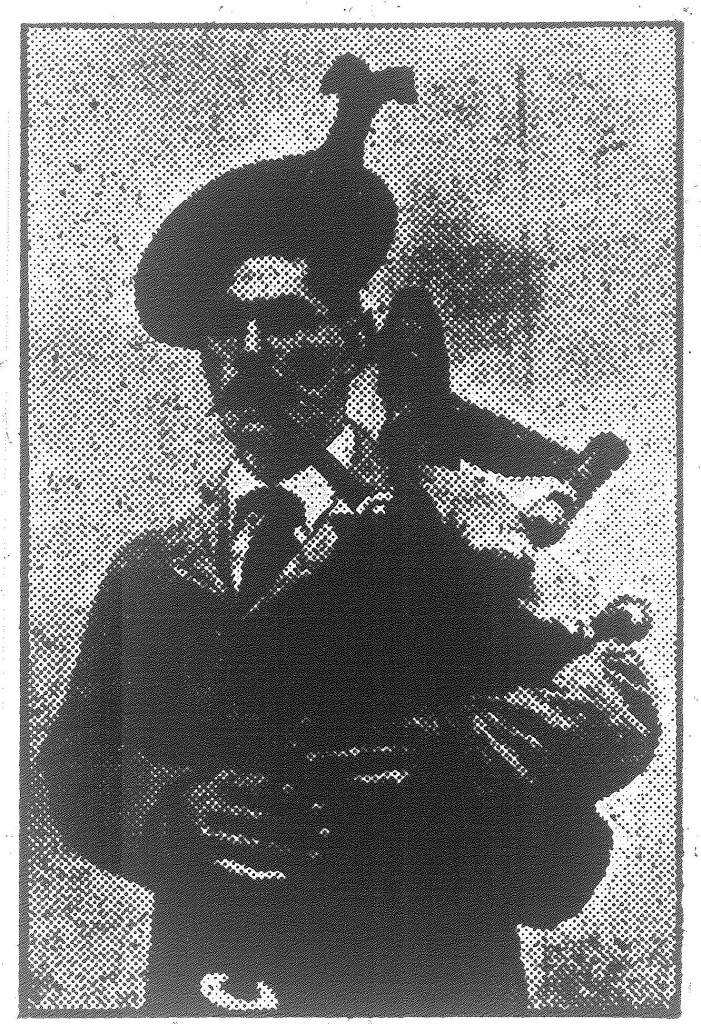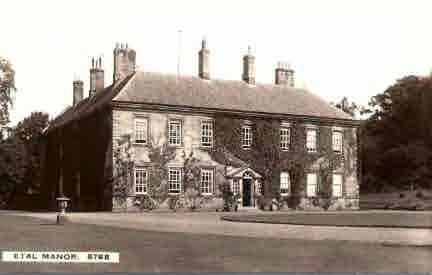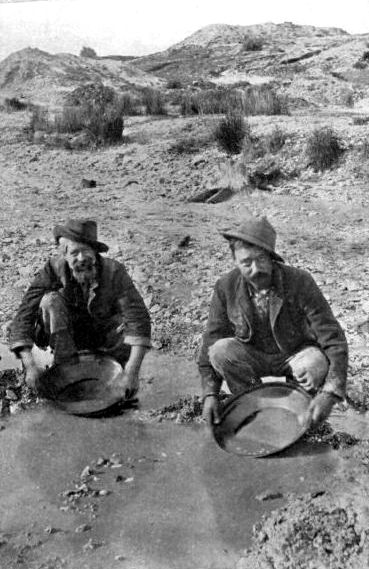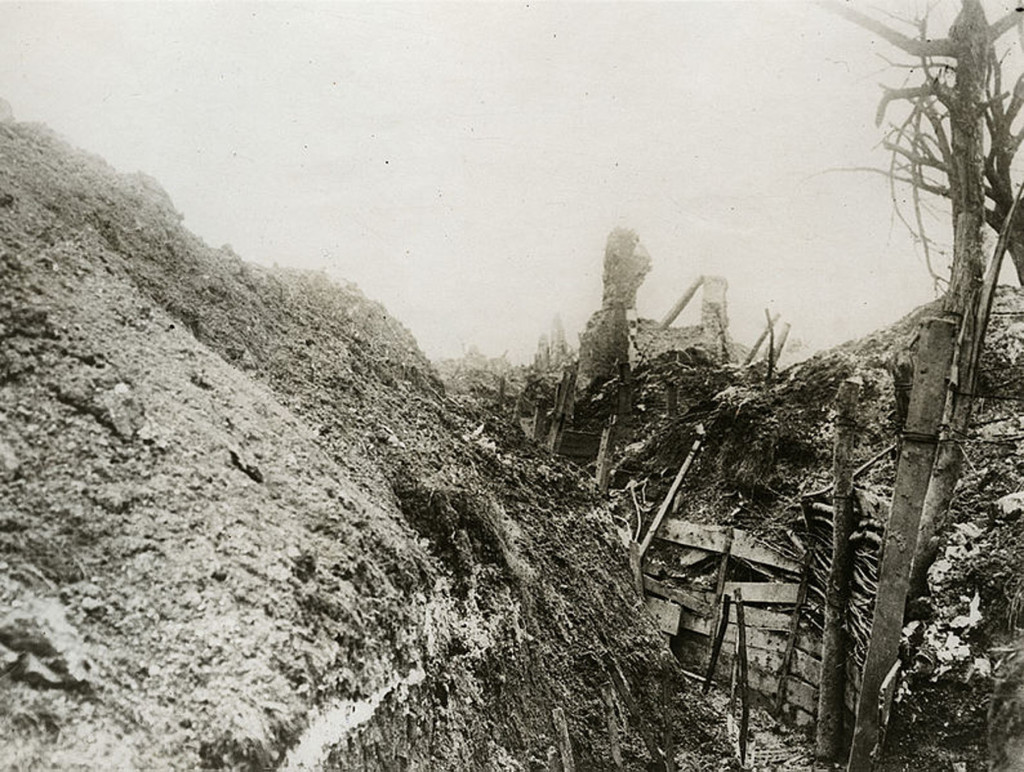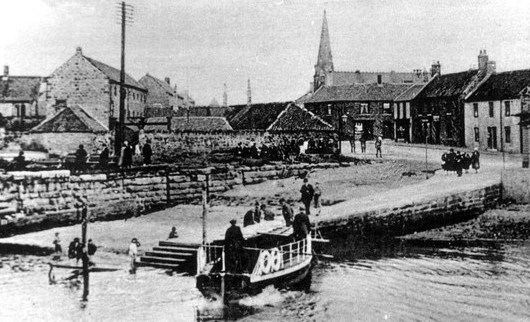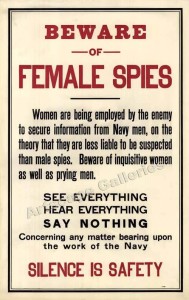BERWICK ADVERTISER, 24 DECEMBER 1915
FAILING TO EDUCATE
Jane Williamson, widow, Berwick, was charged with having failed to send her son John, aged 10 years, to school, as required by law. She pleaded guilty.
Mr Thos. Barker, School Attendance Officer, said the boy was a pupil at the Roman Catholic School, when he did attend, but which was not often. He had made 22 attendances out of 144, therefore being no fewer than 122 times absent. The boy was neglected by the mother, and since October 15 he had not attended school once.
Accused made a statement that she had been frequently out of the town and had visited Edinburgh several times to see her daughter who was in the Infirmary there.
Mr Barker said the case had been four times before the Education Committee prior to proceedings being taken.
The Chief Constable having been asked by the bench to state what he knew of the boy, said the mother went about the countryside collecting old clothes and selling plants. The boy was simply running about wild and the mother evidently thought she could put everyone at defiance.
Mr McCreath (who presided in the absence of the Mayor) – Have you anything to say. This is something horrid, neglecting your child like this.
Accused replied that she had nothing further to say.
In passing sentence of 7s 6d, or seven days, Mr McCreath said she must really consider her child in a matter of this kind. She must see that the boy in future went regularly to school, and should her case ever come up before the Bench again she would be more severely dealt with.
FROM THE TRENCHES TO FREEDOM
On Wednesday morning, Corpl Chas Mace, 7th Northumberland Fusiliers, third son of Mr Charles Mace, joiner and undertaker, Berwick, was admitted to the Freedom of the Burgh. Corporal Mace is home at present upon short leave from the front and took this opportunity of entering the Freedom. The Mayor, Ald. J W Plenderleith in welcoming Corporal Mace said he had already earned promotion in the regiment to which he belonged, and they hoped that might soon be still further advanced, also that in any vocation in life to which he might be called, be it civil or military, he should continue to uphold the traditions of the ancient Burgh.
PIPER LAIDLAW, V C.
Loos Hero’s Welcome in Northumberland
Piper Daniel Logan Laidlaw, V.C., the first Berwickshire native and the first member of the King’s Own Scottish Borderers to win the V.C. in the war, was received with much enthusiasm on the occasion of his return from hospital to his home at Doddington. Before leaving Wooler Station he took the opportunity to urge on the crowd assembled the need for more men, so that the Germans might be pushed back in France at the earliest possible moment.
Under the village Cross at Doddington the vicar (Rev. J. G. Shotton) presented an address of welcome.
The Hon. F. W. Lambton of Fenton, formerly of the Coldstream Guards, said Piper Laidlaw had shown not only valour, but also initiative and touch of genius which enabled a man to do the right thing at the right moment. Initiative was one of the symptoms of the true soldier which we wanted to see encouraged and from his own experience in the Army he knew how much the men appreciated it.
After thanking the inhabitants for the address, Piper Laidlaw was carried shoulder high to his own cottage. His wife and four children accompanied him.
All the residents of the village were entertained to tea and a concert, at which Piper Laidlaw played on the pipes “Blue Bonnets over the Border,” with which he rallied his comrades at Loos, and “Standard on the Braes of Mar” with which he accompanied their charge.
Piper Laidlaw is a native of Swinton, Berwickshire, and on his homeward journey to Doddington, he was welcomed by his aged parents, who now live at Whittingham.
PRESENTATION OF LIFEBOAT AWARDS
Postponement of Ceremonial
The ceremonial, under the auspices of the Berwick Branch of the Royal National Lifeboat Institution, of presenting the silver medal to James Jamieson, second coxswain of the Berwick Lifeboat, and who acted as coxswain on the occasion of saving 6 lives from the motor boat, Redhead on Wednesday , November 10th last., the monetary awards to the members of the crew and the Spittal fishermen, who so gallantly assisted in getting the lifeboat into the harbour, as well as a vote of thanks on vellum to the Hon. Secretary, Dr C.L. Fraser, for acting as second coxswain, was to have taken place in Berwick Playhouse on Thursday afternoon (23d instant).

At the last moment, however, it was decided to postpone the function owing to the limited attendance of the public due to the fact that with the approach of Christmas, there was no usual half holiday.


